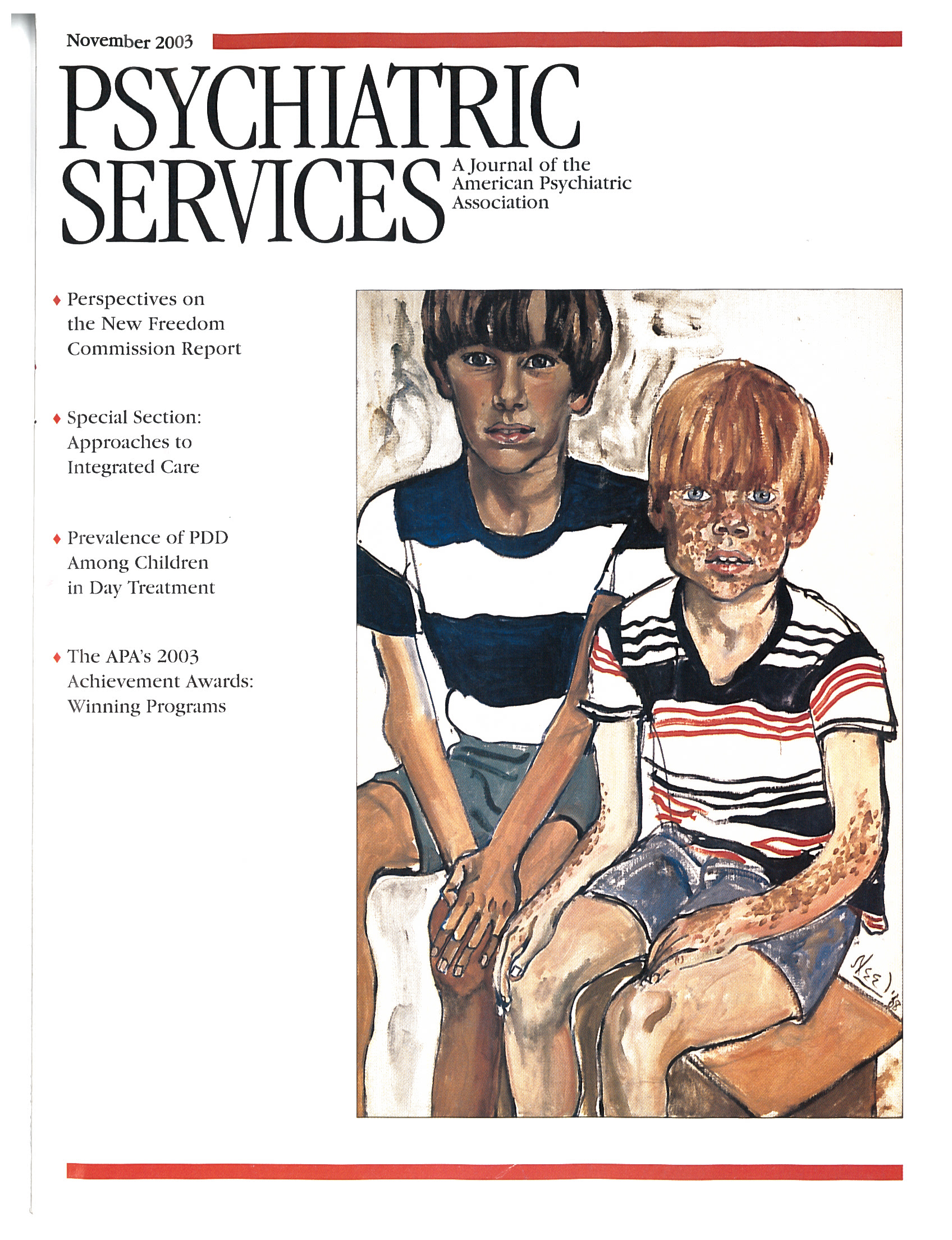The President's New Freedom Commission Report
On July 22 the White House released the final report of the President's New Freedom Commission on Mental Health. In this issue of Psychiatric Services,Commission Chair Michael F. Hogan, Ph.D., describes the year-long process that the Commission undertook to develop the report, summarizes its recommendations, and urges all members of the mental health community to make a commitment to transform the system (see page 1467). Four national mental health advocacy organizations have formed the Campaign for Mental Health Reform to mobilize the mental health community to take advantage of the once-in-a-generation opportunity that the Commission's work presents. The second article describes goals of the campaign and presents statements from the leaders of the four organizations: the National Association of State Mental Health Program Directors, the National Alliance for the Mentally Ill, the National Mental Health Association, and the Bazelon Center for Mental Health Law (see page 1475). In the third article, Marcia Kraft Goin, M.D., Ph.D., president of the American Psychiatric Association, discusses the report's implications for psychiatry (see page 1480). Finally, Saul Feldman, chief executive officer of United Behavioral Health, offers a view of the report from the perspective of managed behavioral health care (see page 1482). Benjamin G. Druss, M.D., M.P.H., and Howard H. Goldman, M.D., Ph.D., were guest editors of the special section (see page 1465).
Special Section on Integration of Care
Given that the theme of the 2003 Institute on Psychiatric Services is "Access to Integrated Mental Health Care," this issue of Psychiatric Services includes a special section consisting of four articles about current integrated approaches to the treatment of mental illness. Ripu D. Jindal, M.D., and Michael E. Thase, M.D., review evidence on the efficacy of combined psychosocial interventions and pharmacologic treatments in subgroups of patients with mood disorders (see page 1484). Alex Kopelowicz, M.D., and Robert Paul Liberman, M.D., discuss the integration of coordinated treatment and rehabilitation, proposing seven principles to guide mental health practitioners in their integration of pharmacologic and psychosocial interventions (see page 1491). Roshel Lenroot, M.D., and colleagues review research and principles applying to the integrated use of current psychosocial and pharmacologic treatments for schizophrenia (see page 1499). Finally, Kyle L. Grazier, Ph.D., and associates describe a unique collaboration among diverse stakeholders in a Wisconsin county to provide integrated care to Medicaid, low-income, and indigent consumers. This project is presented as a model for other states that have growing needy populations and decreasing Medicaid budgets (see page 1508).
Achievement Award Winners
Six outstanding mental health programs have been named winners of the American Psychiatric Association's 2003 Achievement Awards, which were presented on October 29 at the Institute on Psychiatric Services in Boston. Gold Awards were presented to the Family Support Services/PACE program of the Community Mental Health Center for Mid-Eastern Iowa (see page 1526) and to the Open Arms Program of the Cambridge Hospital Child Assessment Unit in Cambridge, Massachusetts (see page 1529). Two programs will each receive Silver Awards, and two will receive Bronze Awards (see page 1532). These second- and third-place awards represent a new category of awards this year, replacing the certificates of significant achievement presented in past years.
Briefly Noted…
• Is drug abuse a chronic relapsing disease or a form of reckless misconduct? The authors of this month's Alcohol & Drug Abuse column discuss the drawbacks of using these two competing analogies to shape drug policy (see page 1455).
• The Psychopharmacology column presents reasons for the underuse of three evidence-based treatments—electroconvulsive therapy, depot antipsychotics, and clozapine (see page 1453).
• A careful examination of recruitment data from four studies has revealed that women are no more likely than men to refuse to participate in psychiatric research studies (see page 1541).
• The books section opens with a review of a manual on assertive outreach in mental health (see page 1549).

